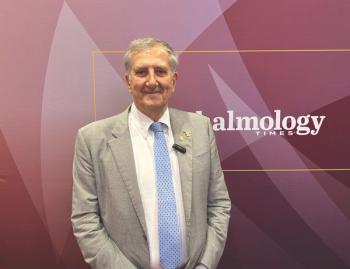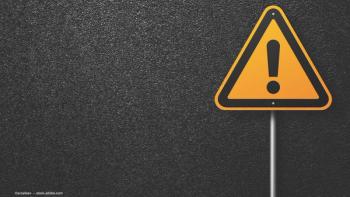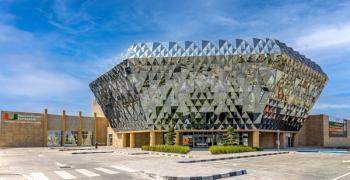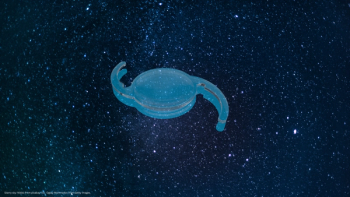
ESCRS 2019: What delegates can expect at this year’s congress
In addition to the latest technology available from exhibitors, conference attendees will have the opportunity to hone their clinical and surgical skills by attending clinical research symposia, refractive surgery courses, poster and free paper sessions, and surgical skills courses and wet labs.
Paris is the scheduled venue for the 37th meeting of the
In addition to the latest technology available from exhibitors, conference attendees will have the opportunity to hone their clinical and surgical skills by attending clinical research symposia, refractive surgery courses, poster and free paper sessions, and surgical skills courses and wet labs.
After hours, there is no shortage of attractions and restaurants for attendees to visit and wind down in the most visited of the world’s cities, the City of Light.
Saturday 14th SeptemberClinical Research Symposia
8:30 am–5:30 pm
The congress opens with a session chaired by
Chairpersons
The next session of the symposium will address Translational Research in Ocular Surgery and will be chaired by
The final session of the day will be Hitting the Target with IOLs. Chairpersons
Refractive Surgery Didactic Course
8:30 am–5:45 pm
The moderators, David Epstein from Switzerland and C. Roberts from the United States, will run a session that will cover subjects including diagnostic techniques, intraocular surgery and corneal surgery therapeutic techniques.
Young Ophthalmologists Programme
8:30 am–4:00 pm
This programme will help novice ophthalmologists learn the procedures involved in phacoemulsification. The programme highlights are videos submitted by young ophthalmologists, referred to as ‘learning from the learners’. Oliver Findl from Austria, Simonetta Morselli from Italy, F. Ribero from Portugal and Kaarina Vannas from Finland will steer the attendees through the learning process with topics that range from preparing for the first operation, biometry, incisions, and capsulorhexis and hydrodissection, among others.
Main Symposia: ESCRS/EuCornea Symposium: Cataract Surgery in Eyes with Diseased Corneas
2:00 pm–6:00 pm
The Main Symposia span the entire length of the conference. On Saturday, the first segment will be chaired by Massimo Busin from Italy and Jesper Hjortdal from Denmark. The topics that will be presented will include a range of complicated scenarios that surgeons may encounter in eyes with corneal disease, including:
- performing cataract surgery with an opaque cornea: overcoming poor visualisation
- opting for cataract extraction alone despite endothelial pathology
- DALK with cataract surgery: a sensible approach?
- DSAEK or DMEK: which to combine with cataract surgery in the diseased cornea?
- when PK is preferable to endothelial keratoplasty
- IOL calculations in the pathological cornea.
“This year’s clinical research symposia on IOLs will deal with an important issue. At this time, the new generations of IOLs, which are appearing for the future, are basically targeting the limitations that have been achieved or reached with the previous technology now in use. Some of the most important are the side effects of dysphotopsia and other photic phenomena, which will be corrected by innovative designs and new materials. Most of these new lenses will be the products of the translational research that is being conducted both in IOL manufacturing and design and also in the surgical use, and especially in patient selection and preparation. IOL power calculation is included in these topics and, indeed, new biometric tools, new formulas based on big data and artificial intelligence and, most probably, new diagnostic criteria that will integrate many diagnostic tools and final surgical recommendations will become available very soon,” Dr Alio commented.
He continued: “Regarding the topic-Cataract Surgery in Eyes with Diseased Corneas-many patients now are approaching the age at which cataract surgery will be required after having undergone a corneal refractive surgery. These patients are targeted by surgeons in the presence of many limitations, the main one being the IOL power calculation and the second the influence on the quality of vision that will result due to the optical quality of the cornea and also the problems of the corneal transparency. Such limitations limit the indication of premium IOLs. Patient selection, IOL power calculation and IOL selection are the key factors to success.
“However, cataracts can occur as well in corneas in which the quality of the light transmission is affected, such as following trauma, keratitis and also corneal dystrophies that are to be operated on with or without the need for a corneal graft. Performing ma simultaneous corneal graft and cataract surgery and dealing with a cataract surgery without removing the borderline transparent cornea are indeed subjects of the utmost importance for the advanced cataract
surgeon.”
Dr Augustin also underscored the importance of attendance at this Main Symposium.
“It is highly recommended to attend this session, which is chaired by one of the major experts in the field. The audience will be provided with the newest information from both research and clinical practice,” he pointed out.
Sunday 15th SeptemberBinkhorst Medal Lecture
10:00 am–10:55 am
Ehud Assia from Israel will deliver this prestigious lecture entitled Thinking Outside the Box during the opening ceremony. He is full professor at Tel-Aviv University, and his main interests are lens pathophysiology, anterior segment surgery and intraocular implants.
Main Symposia: Surgeons Under Stress
11:00 am–1:00 pm
The second leg of the Main Symposia will be chaired by Oliver Findl from Austria and Marianne Severinsen from Denmark. Experts will provide their pearls for dealing with stress, the running out rhexis, constricting pupils, the wobbling lens and the challenging phakic IOL. Other topics include ‘surgical stress quantified’, ‘the SMEK flap upside-down’ and ‘relaxing the patient’ followed by ‘relaxing the surgeon’).
While complications are a fact of life, surgeons must be ready for them, and this symposium helps with that, according to our resident experts.
Dr Augustin states: “Nobody likes to talk about complications. However, they do occur under the best of circumstances. This symposium will teach you how to avoid and to manage those complications”.
“Special cases call for special surgeons,” Dr Alio said, “but sometimes a novice or inexperienced surgeon faces problems during surgery, which creates stress. The manner in which surgeons deal with these situations is a matter of professionalism. Surgeons’ training, operative control, including anaesthesia, availability of the appropriate technologies and surgical tools in the operating room to solve the problems, when unexpected, and adequate technical and human resource assistance, are essential. Planning the solution to a problem relieves the stress and favours a good outcome”.
Practice Management Masterclass
08:30 am–6:00 pm
This workshop, entitled A ‘Patient Experience’ Summit: Building A Patient-Centric Ophthalmic Practice That Maximises Profits, will be conducted by A. Carones from Italy and M. Malley from the United States.
The experts will challenge attending surgeons to critically assess their effectiveness in various aspects of their clinics, including physician time management, practice profit margins, patient education processes, premium services planning, staff conversion training, practice culture commitment, exit-strategy evaluation, staff incentive strategies, maximising surgeon roduction, and cost control.
Young Ophthalmologists Session
4:00 pm–6:00 pm
This session, Cataract Surgery: Learning from Our Mistakes (video-based didactic lectures), will help young ophthalmologists to move from novice to intermediate to advanced surgeons with the aid of video-based lectures. Subjects for the novice surgeon will include the novice getting the crack and avoiding posterior capsule tears; for the intermediate surgeon, approaching PEX patients and handling IFIS and small pupils; and for the more advanced surgeon, performing the first anterior vitrectomy and deciding which IOL to use.
Video Awards Session
4:00 pm–6:00 pm
The winners of the 2019 Video Competition will be announced during this session.
Monday 16th SeptemberESCRS Practice Management and Development Programme
08.00 am–6:00 pm
This course, which is entitled Challenges and Opportunities for the 21st-Century Practice, will give attendees the opportunity to listen to the Report on ESCRS Practice Management and Development Activities 2019 and learn about next-generation marketing, diversification
as the key to digital success, and lessons learned from GDPR. The audience will also be able to talk with the experts, learn how to build a high-performing practice by investing in staff and patients, optimise patient flow in a busy practice, and negotiate.
ESCRS Heritage Lecture 2019
10:30 am–11:00 am
David Spalton from the UK will deliver a lecture entitled The Origins of Cataract Surgery.
Main Symposia: Artificial Intelligence in Ophthalmology
11:00 am–1:00 pm
Monday’s session, chaired by Beatrice Cochener-Lamard from France and Guy Kleinmann from Israel, will address the pros and cons of artificial intelligence and how it relates to:
- ethics
- age-related macular degeneration
- diagnosing glaucoma
- generalisation to other pathologies and imaging devices
- smart lenses to compensate accommodation loss
- robotisation in eye surgery.
Dr Augustin advised that attending this session is a ‘must’, stating: “Artificial intelligence is rapidly coming to the medical field. This is especially true in ophthalmology, in which many imaging and calculation tools are suited to the implementation of this technology”.
Dr Alio remarked on how often this topic comes up at medical conferences. “This is one of the most frequent topics today in medical meetings. Due to the progress in data management and filing, we now have access to huge amounts of information, which, when properly managed, can lead to an immense source of knowledge. This knowledge will affect not only calculations associated with IOLs or refractive surgery but also diagnostic algorithms for particular diseases
and in the decision-making process during the management of complex situations and, especially, complex cases.”
“Artificial intelligence is certainly one of the main tools in the progress of medicine in the future,” he pointed out.
Combined Symposium of Cataract & Refractive Societies
4:15 pm–6:15 pm
The participating organisations include ESCRS, Asia–Pacific Association of Cataract & Refractive Surgeons, American Society of Cataract & Refractive Surgery, and Latin American Society of Cataract & Refractive Surgeons. Beatrice Cochener-Lamard from France will chair this session.
This year’s topic is Innovative IOL Technology and the subjects covered will be: light-adjustable IOLs, multicomponent adjustable IOLs, a new delivery system, extended depth-of-focus IOLs, pinhole small-aperture IOLs, piggyback implantation, last refinement in biomaterial, and IOLs
on the horizon.
Tuesday 17th SeptemberMain Symposia: The Unhappy Pseudophakic Patient
11:00 am–1:00 pm
This session topics include: causes of patient dissatisfaction in the Swedish Cataract Registry, 20/20 but still unhappy, happy until the IOL dislocated, negative dysphotopsias, unhappy toric IOL patient, and unhappy multifocal IOL patient. The section will be managed by Anders Behndig from Sweden and Rudy Nuijts from The Netherlands.
“Every practice has unhappy patients. This session will teach you how to determine the reason for their unhappiness and, importantly, how to manage those patients. I strongly recommend that ophthalmologists attend a session such as this one at least once a year,” Dr Augustin
stated.
Wednesday 18th September
Main Symposia: Long-Term Implications of Standard Refractive Procedures
11:00 am–1:00 pm
The final session will include the discussion of the following topics: laser-assisted in situ keratomileusis, photorefractive keratectomy, corneal ring segments, corneal inlays, phakic IOLs, and refractive lens exchange.
The chairpersons will be Jose Guell from Spain and Francois Malecaze from France.
“Refractive surgery of the cornea has reached maturity following more than 25 years of enormous development. Some of these techniques fail in the long term while others have been confirmed in their successful outcomes. The different techniques and the perspective provided by the test of time will be of most interest for cataract and refractive surgeons who want to see not only the history but also the perspectives of the practice of today’s refractive surgery in the future,” according to Dr Alio.
Best of the Best Review Session
9:00 am–9:30 am
This is a wrap-up of the of the most interesting presentations and videos presented during the conference as determined by a panel of physicians.
Throughout the conference
Certain elements of the congress programme are available each day at different times. These include the following:
Surgical Skills Training Courses and Wet labs
The cost for all wet labs for trainees is fixed at €100 per course. For regular delegates, the costs will vary between €100 and €150, depending on the amount of equipment and preparation required for a particular wetlab.
Surgical skills training courses are hands-on wet lab courses utilizing high-communication wetlab technology as well as the SFVT eye model with red reflex and changeable intraocular pressures. These classes offer participants the opportunity to practice surgical techniques on porcine eyes. The classes are small and utilise two-way audio and video as teaching tools.
Attendance in surgical skills training courses is limited and prebooking for the courses is advised.
Dr Alio explained the importance of these courses: “Surgical wetlabs are natural complements to meetings for improving the skills in particular surgical techniques. Wetlabs are traditionally conducted at ESCRS with success and professionalism. Junior doctors and those who attend with the intentions of learning a new surgical technique and using new surgical tools are invited to attend these courses”.
Instructional Courses
Always a high point of ESCRS, instructional courses are available throughout each meeting day. The starting times vary, with the courses running from 8:30 am to 6:00 pm on Saturday, from 8:00 am to 6:00 pm on Sunday, from 8:00 am to 6:00 pm on Monday, and from 8:30 am to 4:00 pm on Tuesday.
Free Paper Sessions
Free paper sessions are scheduled throughout the programme, beginning on Saturday and continuing on Sunday, Monday and Tuesday.
Poster Sessions
Poster sessions, both presented and moderated, will be conducted in Poster Village. They are scheduled to run on Saturday from 2:00 pm to 4:30 pm, on Sunday from 9:00 am to 4:30 pm, on Monday from 9:30 am to 4:00 pm, and on Tuesday from 9:30 am to 5:00 pm.
Exhibit Hall
The exhibit hall will be open each day beginning on Saturday from 9:00 am to 5:00 pm. The exhibits will be located in the same venue as the conference.
Visit Ophthalmology Times Europe at Booth J102.
Newsletter
Get the essential updates shaping the future of pharma manufacturing and compliance—subscribe today to Pharmaceutical Technology and never miss a breakthrough.




























